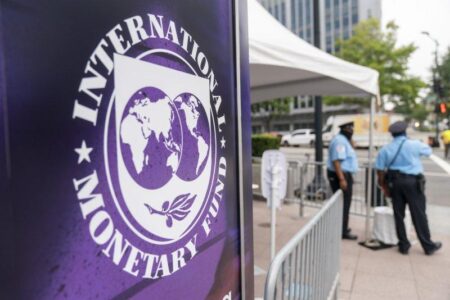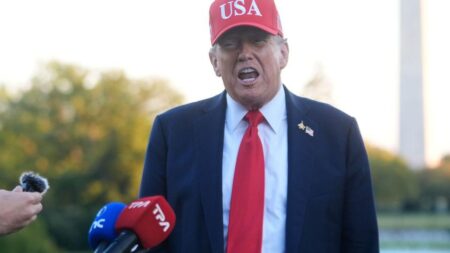Recent incidents of anthem booing at sporting events have cast a spotlight on the fading warmth between the United States and Canada, once characterized by deep-rooted friendship and close cooperation. What was traditionally a symbol of shared values and mutual respect has, in some arenas, become a flashpoint reflecting broader political and social tensions. This troubling trend offers a sobering indicator of the challenges now confronting the bilateral relationship, raising questions about the future of North America’s strongest alliance.
Anthem Booing Reflects Deepening Strains Between U.S. and Canada
What was once an emblem of camaraderie during international sports events is now a flashpoint of growing discontent. The recent reaction to the American anthem at a major hockey game, punctuated by boos and whistles from Canadian fans, underscores a palpable shift in public sentiment. While political rhetoric and trade disputes have long simmered beneath the surface, these audible expressions of frustration reveal a deeper erosion of goodwill that crosses border lines. Observers note that such displays are less about sport and more a reflection of accumulated grievances tied to economic policies, environmental disagreements, and differing approaches to diplomacy.
- Trade tensions escalating, fueling protectionist attitudes.
- Contentious energy policies affecting cross-border cooperation.
- Disparate immigration and refugee stances stirring public unease.
Experts suggest that while sports have traditionally been a balm in U.S.-Canada relations, current events signal something more concerning. The visible disapproval during an anthem – an event designed to unify – hints at a population increasingly viewing their southern neighbors through a lens of skepticism. This shift poses questions about how bilateral ties can be repaired when public perception grows sour. The dynamics are complex, involving historical alliances now strained by modern challenges, as illustrated in the simple yet telling incident of a booed anthem echoing through a packed stadium.
| Issue | Impact on Relations | Public Sentiment |
|---|---|---|
| Tariffs on Steel and Aluminum | Increased Trade Barriers | Resentment and Frustration |
| Environmental Policy Divergence | Cross-Border Tensions | Heightened Awareness |
| Immigration Enforcement | Diplomatic Strain | Polarized Opinions |
Historical Context Reveals Erosion of Shared Values and Mutual Respect
The once unprecedented camaraderie between the United States and Canada has visibly frayed over recent decades, signaling a deeper unraveling of shared societal values and mutual respect. What was once a relationship characterized by seamless cooperation and friendship now reflects periodic tension and misunderstandings, as demonstrated by incidents such as the booing during the national anthems. This shift is rooted in a complex history where global events, domestic policies, and shifting cultural narratives have gradually pushed the two nations onto differing trajectories.
Several key factors have contributed to this erosion:
- Political polarization: Divergent political climates influencing public opinion and government actions on both sides.
- Economic competition: Increasing rivalries in trade and resource management creating friction beneath the surface.
- Cultural shifts: Emerging national identities causing reexaminations of what each country values most in its neighbor.
| Era | Relationship Highlight | Impact on Shared Values |
|---|---|---|
| Post-WWII | Alliance in NATO & economic partnerships | Strong collaboration & unified purpose |
| 1990s | NAFTA agreement signed | Mutual economic growth & trust |
| 2010s | Increased border security | Growing caution and suspicion |
| 2020s | Public incidents like anthem booing | Emergence of fragmented social sentiments |
Bridging the Divide Requires Renewed Diplomatic Engagement and Cultural Exchange
Addressing the recent strains between the United States and Canada demands more than political dialogue; it calls for a revitalized commitment to cultural exchange as a means to rebuild trust and mutual respect. These exchanges have historically served as vital bridges, allowing citizens on both sides to appreciate each other’s perspectives beyond governmental rhetoric. Reinvigorating programs such as student exchanges, joint artistic ventures, and collaborative media projects can foster a deeper understanding that transcends political friction and reflects the shared values and histories that knit the two nations together.
Key initiatives to consider include:
- Youth leadership forums: Engaging young Canadians and Americans in bipartisan discussions about common challenges and future collaboration.
- Cultural festivals: Celebrating cross-border artists to highlight harmonious narratives amid political discord.
- Academic partnerships: Expanding bilateral research on social policy and community development.
- Sports diplomacy: Reinforcing goodwill through joint team events and tournaments.
| Program | Purpose | Impact |
|---|---|---|
| Border Youth Summit | Foster cross-border dialogue | Empowered 300 youth leaders (2023) |
| North American Arts Exchange | Promote shared cultural heritage | Supported 50 joint projects (2022) |
| Academic Exchange Grants | Encourage collaborative research | Funded 40 partnerships (2023) |
Future Outlook
The recent displays of anthem booing cast a troubling light on the current state of U.S.-Canada relations, reflecting deeper tensions that were once unthinkable between these close neighbors. As both countries navigate a complex geopolitical landscape, the challenge will be to move beyond symbolic gestures of discontent and work toward rebuilding the respect and cooperation that have long defined their partnership. Only through constructive dialogue and mutual understanding can the two nations hope to restore the spirit of unity that has, for decades, been a cornerstone of their shared history.




